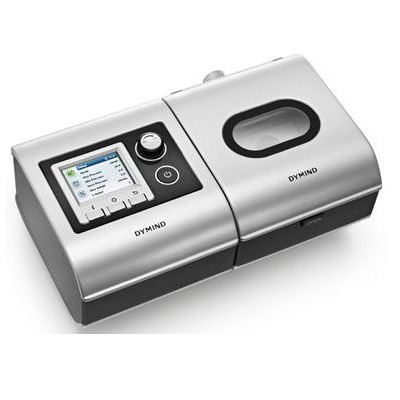FDA Could Issue Emergency Use Authorization for COVID-19 Vaccine Within Weeks After Clinical Trial Data Meet Efficacy Requirements
|
By HospiMedica International staff writers Posted on 05 Aug 2020 |

Illustration
The US Food and Drug Administration (FDA Silver Spring, MD, USA) could issue an emergency use authorization (EUA) for a COVID-19 vaccine in a “matter of weeks” after clinical trial data meet efficacy requirements, according to a top FDA official.
The EUA would speed up the process of producing the COVID-19 vaccine and making it available for the public. Speaking at a recent online event called the Disease Control and Prevention Summit, Peter Marks, MD, director of the FDA Center for Biologics Evaluation and Research, which approves vaccines, said “We’d like to hope that when (efficacy) happens, it will be a matter of weeks before we could actually potentially have something like an emergency use authorization.” However, on an FDA podcast called FDA Insight, Marks cautioned that such an authorization was still months away. Referring to two vaccine candidates that had entered into advanced clinical trials and were being tested on a large group of people, Marks said that enrolling people in a trial takes time and the vaccine’s effectiveness would be visible only after months, suggesting that a vaccine would become available several months from now.
Instead of the step-by-step process that was usually followed for developing vaccines in order to reduce the risk of financial investment, multiple steps were currently being funded at the same time to move a COVID-19 vaccine quickly, according to Marks, although safety remained the top priority. Calling the leading vaccines that had just entered advanced clinical trials as “trailblazers”, Marks said that they would provide more information for the next vaccine candidates. Given that more than one vaccine was in advanced clinical trials, Marks said that there was a possibility of multiple options becoming available to the people, with one working better in older adults and another causing fewer side effects among certain groups. In that case, Marks suggested that patients should speak with their doctors to choose the best vaccine option.
“Now, how much of it will be deployed and how long that will take I can’t answer today,” said Marks. “But I know there are teams working on that and they’re trying to make that as quick as possible and to make it make as much sense as possible so that the first vaccine that’s ready to go goes out to the people who need it most and that ultimately everyone who wants to get vaccinated can get vaccinated.”
Related Links:
US Food and Drug Administration (FDA)
The EUA would speed up the process of producing the COVID-19 vaccine and making it available for the public. Speaking at a recent online event called the Disease Control and Prevention Summit, Peter Marks, MD, director of the FDA Center for Biologics Evaluation and Research, which approves vaccines, said “We’d like to hope that when (efficacy) happens, it will be a matter of weeks before we could actually potentially have something like an emergency use authorization.” However, on an FDA podcast called FDA Insight, Marks cautioned that such an authorization was still months away. Referring to two vaccine candidates that had entered into advanced clinical trials and were being tested on a large group of people, Marks said that enrolling people in a trial takes time and the vaccine’s effectiveness would be visible only after months, suggesting that a vaccine would become available several months from now.
Instead of the step-by-step process that was usually followed for developing vaccines in order to reduce the risk of financial investment, multiple steps were currently being funded at the same time to move a COVID-19 vaccine quickly, according to Marks, although safety remained the top priority. Calling the leading vaccines that had just entered advanced clinical trials as “trailblazers”, Marks said that they would provide more information for the next vaccine candidates. Given that more than one vaccine was in advanced clinical trials, Marks said that there was a possibility of multiple options becoming available to the people, with one working better in older adults and another causing fewer side effects among certain groups. In that case, Marks suggested that patients should speak with their doctors to choose the best vaccine option.
“Now, how much of it will be deployed and how long that will take I can’t answer today,” said Marks. “But I know there are teams working on that and they’re trying to make that as quick as possible and to make it make as much sense as possible so that the first vaccine that’s ready to go goes out to the people who need it most and that ultimately everyone who wants to get vaccinated can get vaccinated.”
Related Links:
US Food and Drug Administration (FDA)
Latest COVID-19 News
- Low-Cost System Detects SARS-CoV-2 Virus in Hospital Air Using High-Tech Bubbles
- World's First Inhalable COVID-19 Vaccine Approved in China
- COVID-19 Vaccine Patch Fights SARS-CoV-2 Variants Better than Needles
- Blood Viscosity Testing Can Predict Risk of Death in Hospitalized COVID-19 Patients
- ‘Covid Computer’ Uses AI to Detect COVID-19 from Chest CT Scans
- MRI Lung-Imaging Technique Shows Cause of Long-COVID Symptoms
- Chest CT Scans of COVID-19 Patients Could Help Distinguish Between SARS-CoV-2 Variants
- Specialized MRI Detects Lung Abnormalities in Non-Hospitalized Long COVID Patients
- AI Algorithm Identifies Hospitalized Patients at Highest Risk of Dying From COVID-19
- Sweat Sensor Detects Key Biomarkers That Provide Early Warning of COVID-19 and Flu
- Study Assesses Impact of COVID-19 on Ventilation/Perfusion Scintigraphy
- CT Imaging Study Finds Vaccination Reduces Risk of COVID-19 Associated Pulmonary Embolism
- Third Day in Hospital a ‘Tipping Point’ in Severity of COVID-19 Pneumonia
- Longer Interval Between COVID-19 Vaccines Generates Up to Nine Times as Many Antibodies
- AI Model for Monitoring COVID-19 Predicts Mortality Within First 30 Days of Admission
- AI Predicts COVID Prognosis at Near-Expert Level Based Off CT Scans
Channels
Critical Care
view channel
Light-Based Technology to Measure Brain Blood Flow Could Diagnose Stroke and TBI
Monitoring blood flow in the brain is crucial for diagnosing and treating neurological conditions such as stroke, traumatic brain injury (TBI), and vascular dementia. However, current imaging methods like... Read more
AI Heart Attack Risk Assessment Tool Outperforms Existing Methods
For decades, doctors have relied on standardized scoring systems to assess patients with the most common type of heart attack—non-ST-elevation acute coronary syndrome (NSTE-ACS). The GRACE score, used... Read moreSurgical Techniques
view channel
Minimally Invasive Endoscopic Surgery Improves Severe Stroke Outcomes
Intracerebral hemorrhage, a type of stroke caused by bleeding deep within the brain, remains one of the most challenging neurological emergencies to treat. Accounting for about 15% of all strokes, it carries... Read more
Novel Glue Prevents Complications After Breast Cancer Surgery
Seroma and prolonged lymphorrhea are among the most common complications following axillary lymphadenectomy in breast cancer patients. These postoperative issues can delay recovery and postpone the start... Read morePatient Care
view channel
Revolutionary Automatic IV-Line Flushing Device to Enhance Infusion Care
More than 80% of in-hospital patients receive intravenous (IV) therapy. Every dose of IV medicine delivered in a small volume (<250 mL) infusion bag should be followed by subsequent flushing to ensure... Read more
VR Training Tool Combats Contamination of Portable Medical Equipment
Healthcare-associated infections (HAIs) impact one in every 31 patients, cause nearly 100,000 deaths each year, and cost USD 28.4 billion in direct medical expenses. Notably, up to 75% of these infections... Read more
Portable Biosensor Platform to Reduce Hospital-Acquired Infections
Approximately 4 million patients in the European Union acquire healthcare-associated infections (HAIs) or nosocomial infections each year, with around 37,000 deaths directly resulting from these infections,... Read moreFirst-Of-Its-Kind Portable Germicidal Light Technology Disinfects High-Touch Clinical Surfaces in Seconds
Reducing healthcare-acquired infections (HAIs) remains a pressing issue within global healthcare systems. In the United States alone, 1.7 million patients contract HAIs annually, leading to approximately... Read moreHealth IT
view channel
Printable Molecule-Selective Nanoparticles Enable Mass Production of Wearable Biosensors
The future of medicine is likely to focus on the personalization of healthcare—understanding exactly what an individual requires and delivering the appropriate combination of nutrients, metabolites, and... Read moreBusiness
view channel
Philips and Masimo Partner to Advance Patient Monitoring Measurement Technologies
Royal Philips (Amsterdam, Netherlands) and Masimo (Irvine, California, USA) have renewed their multi-year strategic collaboration, combining Philips’ expertise in patient monitoring with Masimo’s noninvasive... Read more
B. Braun Acquires Digital Microsurgery Company True Digital Surgery
The high-end microsurgery market in neurosurgery, spine, and ENT is undergoing a significant transformation. Traditional analog microscopes are giving way to digital exoscopes, which provide improved visualization,... Read more
CMEF 2025 to Promote Holistic and High-Quality Development of Medical and Health Industry
The 92nd China International Medical Equipment Fair (CMEF 2025) Autumn Exhibition is scheduled to be held from September 26 to 29 at the China Import and Export Fair Complex (Canton Fair Complex) in Guangzhou.... Read more
















